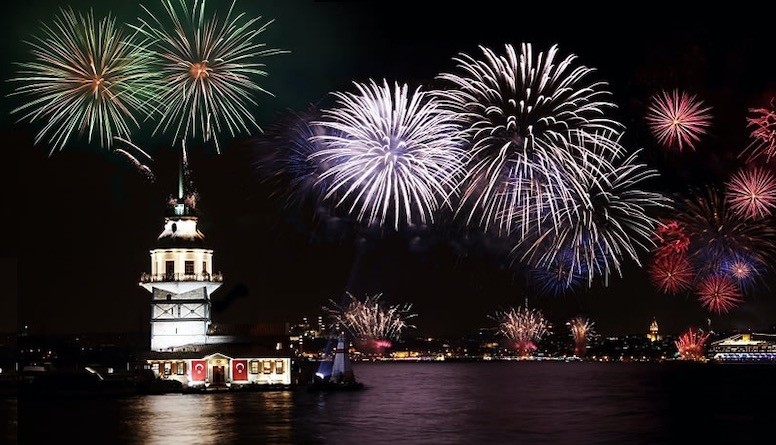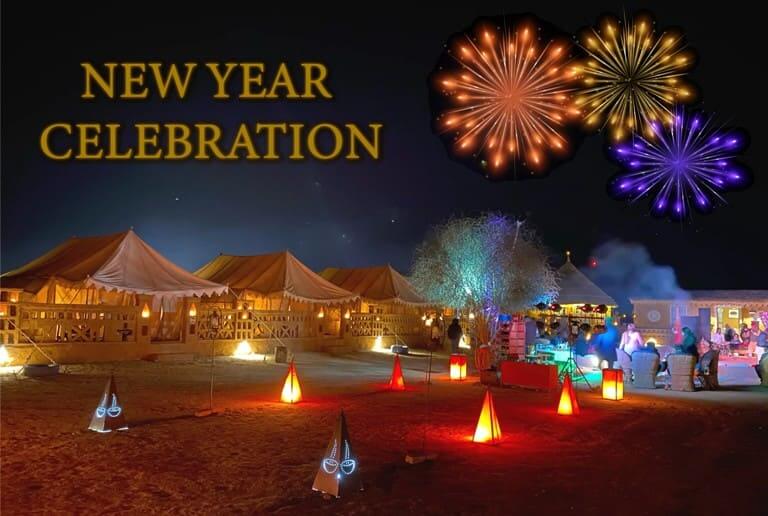In many countries, New Year’s celebrations begin on the evening of December 31—New Year’s Eve—and continue into the early hours of January 1. Revelers often enjoy meals and snacks thought to bestow good luck for the coming year. In Spain and several other Spanish-speaking countries, people bolt down a dozen grapes-symbolizing their hopes for the months ahead-right before midnight. In many parts of the world, traditional New Year’s dishes feature legumes, which are thought to resemble coins and herald future financial success; examples include lentils in Italy and black-eyed peas in the southern United States. Because pigs represent progress and prosperity in some cultures, pork appears on the New Year’s Eve table in Cuba, Austria, Hungary, Portugal and other countries. Ring-shaped cakes and pastries, a sign that the year has come full circle, round out the feast in the Netherlands, Mexico, Greece and elsewhere. In Sweden and Norway, meanwhile, rice pudding with an almond hidden inside is served on New Year’s Eve; it is said that whoever finds the nut can expect 12 months of good fortune.The New Year celebration is a global spectacle marked by reflection and exuberance. As the clock strikes midnight, people worldwide bid adieu to the past year, embracing the promise of a fresh start.It is a time for personal introspection, where individuals reflect on accomplishments and challenges, paving the way for resolutions and aspirations. From grand fireworks in major cities to intimate gatherings in local communities, diverse traditions intertwine to create a tapestry of festivities. The exchange of greetings and the warmth of human connection underscore the significance of togetherness. The New Year celebration is more than a transition; it is a collective expression of hope, unity, and the anticipation of new beginnings.New Year celebration is a global jubilation marked by joyous gatherings, vibrant fireworks, and the anticipation of a fresh start as people bid farewell to the old year and welcome the new one with enthusiasm and hope. It's a time for reflection, resolutions, and shared festivities around the world.


